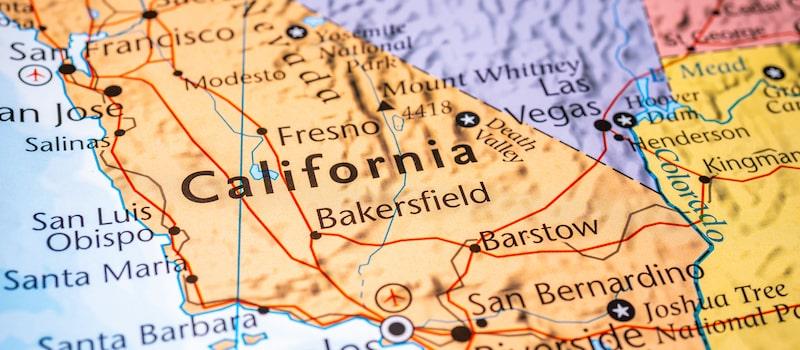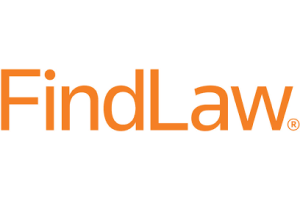as a Consumer
Understanding California Repossession Laws: A Comprehensive Guide

When it comes to vehicle repossession, California has specific laws that outline the rights and responsibilities of both lenders and borrowers. It’s crucial for California citizens to be aware of these regulations to navigate the repossession process knowledgeably. Let’s explore key aspects that California repossession laws and issues residents may have questions about.
1. How Many Car Payments Can Be Missed Before a Repossession?
Pursuant to California repossession laws, the number of missed car payments before repossession can occur is typically determined by the terms stipulated in the loan agreement. Most lenders, however, reserve the right to initiate repossession proceedings for any delinquent loan balance, even a single missed payment. It’s essential for borrowers to carefully review their loan agreements, as terms can vary, and to communicate promptly with the lender if financial challenges arise.
2. How to Know When You Can Expect a Repossession?
California repossession law mandates lenders to provide borrowers with a notice of intent to repossess before taking any repossession action. This notice should detail the reasons for repossession, the outstanding amounts, and a specified timeframe within which the borrower can address the delinquency. Staying informed about payment schedules, thoroughly reading correspondences from the lender, and proactively addressing financial challenges will help anticipate and respond to potential repossession.
3. What Can a Repossession Agency Do to Repossess a Car?

Under California law a repossession agent is granted certain rights to repossess a vehicle, but they must operate within a legal framework to ensure borrower protection. If you think your repo rights were violated by a bad acting repossession company contact Thompson Consumer Law Group for a free no obligation analysis of your situation.
Accessing Public Areas:
A repossession agent can repossess a vehicle from public spaces without breaching the peace. Public areas such as streets, parking lots, or driveways are accessible for repossession without specific authorization.
Private Property Access:
When it comes to private property, a repossession agent must adhere to strict guidelines. They can generally enter open private property to repossess a vehicle but must do so without breaching the peace. Any use of force, threats, or intimidation is strictly prohibited.
Respecting Property Boundaries:
A repossession agent is obligated to respect property boundaries during repossession. Unauthorized entry into enclosed spaces, like closed garages or fenced areas, is not permissible without proper authorization, and a repossession company can be held liable for the acts of its repo men..
Avoiding Confrontation:
Repo agents must conduct repossessions peacefully, avoiding confrontational actions. But they are often incentivized by the repossession agency they work for to reclaim the vehicle under any and all circumstances.

Understanding the nuances of vehicle repossession laws in California empowers borrowers to navigate the process with knowledge and awareness. Staying informed about payment terms, noticing lender communications, and proactively addressing financial challenges are essential elements in avoiding repossession or responding effectively if it becomes inevitable.
4. What Constitutes a Breach of Peace?
Understanding what qualifies as a breach of peace under California law during repossession is crucial. In California, a breach of peace occurs when the agents of a repossession company engage in any actions that disrupt public order, escalate confrontations, or violate the borrower’s rights. This is true even where the legal owner is delinquent on his or her loan balance or otherwise in violation of loan agreement.
Forceful Entry or Trespassing:
Repo agents cannot forcefully enter private property or trespass without proper authorization. Any unauthorized entry, especially into closed or secured areas, constitutes a breach of peace.
Confrontational Actions:
Actions that create disturbances, confrontations, or commotions during repossession are breaches of peace. Repo agents must avoid threatening or intimidating behavior that could escalate tensions.
Violation of Property Rights:
Repo agents must respect property rights and legal constraints. Violating property boundaries or attempting to seize a vehicle unlawfully constitutes a breach of peace.
5. What Can Be Done After the Repossession to Get the Car Back?
If your vehicle has been repossessed in California, you have certain rights and options to potentially regain possession:
Right to Redeem:
In California, you have the right to redeem the vehicle by paying the outstanding balance along with repossession and storage fees. This allows you to reclaim the vehicle before it is sold. You are informed of this information in a post repossession notice.
Reinstating the Loan:
Some lenders may allow you to reinstate the loan by catching up on missed payments and covering associated fees. This option helps you bring the loan current and prevent the sale of the repossessed vehicle. The lender will send you a written notice detailing this process.
Negotiate with the Lender:
It’s advisable to communicate with the lender to explore potential resolutions. Some lenders may be open to negotiating a new payment plan or finding other ways to address the delinquency.

Understanding the nuances of vehicle repossession laws in California empowers borrowers to navigate the process with knowledge and awareness. Staying informed about payment terms, noticing lender communications, and proactively addressing financial challenges are essential elements in avoiding repossession or responding effectively if it becomes inevitable.
6. The Role of the Rosenthal Fair Debt Collection Practices Act (RFDCPA):
The Rosenthal Fair Debt Collection Practices Act (RFDCPA) plays a crucial role in regulating debt collection practices in California, extending protections beyond the federal Fair Debt Collection Practices Act (FDCPA). It covers personal, family, and household debts, including those arising from the purchase of vehicles. Understanding how the RFDCPA applies to different stages of the repossession process is essential for California borrowers.
a. Collections Prior to Repossession:
Before repossession, debt collectors, including those working on behalf of lenders, must adhere to the RFDCPA. This means they must engage in fair, transparent, and non-deceptive practices when attempting to collect a debt. Violations may include false representations of the amount owed, threats, or harassment. If you believe your rights under the RFDCPA were violated during the pre-repossession collection process, a repo rights lawyer can assess the situation and guide you on potential legal actions.
b. The Repossession Itself and RFDCPA:
During the repossession process, repo agents and debt collectors must continue to abide by the RFDCPA. This includes refraining from deceptive practices, misrepresentations, or intimidating behavior. Repo agents must provide accurate information about the repossession and respect the borrower’s rights. Any violations of the RFDCPA during the repossession can be grounds for legal action. A repo rights lawyer can help determine if your rights were violated and what steps can be taken.
c. Collections After Repossession and RFDCPA Violations:
Even after repossession, debt collectors are bound by the RFDCPA in their efforts to collect the remaining debt. This means providing accurate information, avoiding false representations, and refraining from practices that may be construed as harassment. If you believe your rights under the RFDCPA are being violated in the post-repossession collections phase, consulting with a repo rights lawyer is crucial. They can assess the situation, determine if violations occurred, and guide you on potential legal actions to take against the debt collector.
Consulting With an Attorney:
If you believe the repossession was unlawful or involved a breach of peace get a free no obligation case review from an experienced consumer repossession lawyer. They can assess the circumstances, determine if your rights were violated, and guide you on potential legal actions to take. Engaging a repo rights lawyer in California can be pivotal in safeguarding your rights throughout the repossession process:
Assessment of Violations:
A repo rights lawyer can assess whether there have been violations of state and federal laws, including the RFDCPA, during the repossession process.
Legal Recourse:
If violations are identified, a repo rights lawyer can guide you on potential legal recourse. This may involve filing complaints against violators, seeking damages, or taking legal action to rectify unlawful repossession.
Negotiation and Representation:
Repo rights lawyers can negotiate with lenders or repo agents on your behalf, seeking fair resolutions and ensuring that your rights are respected throughout the process. Lawyers focusing on repo rights are well-versed in consumer protection laws, ensuring that you receive the full extent of legal safeguards available to you.







